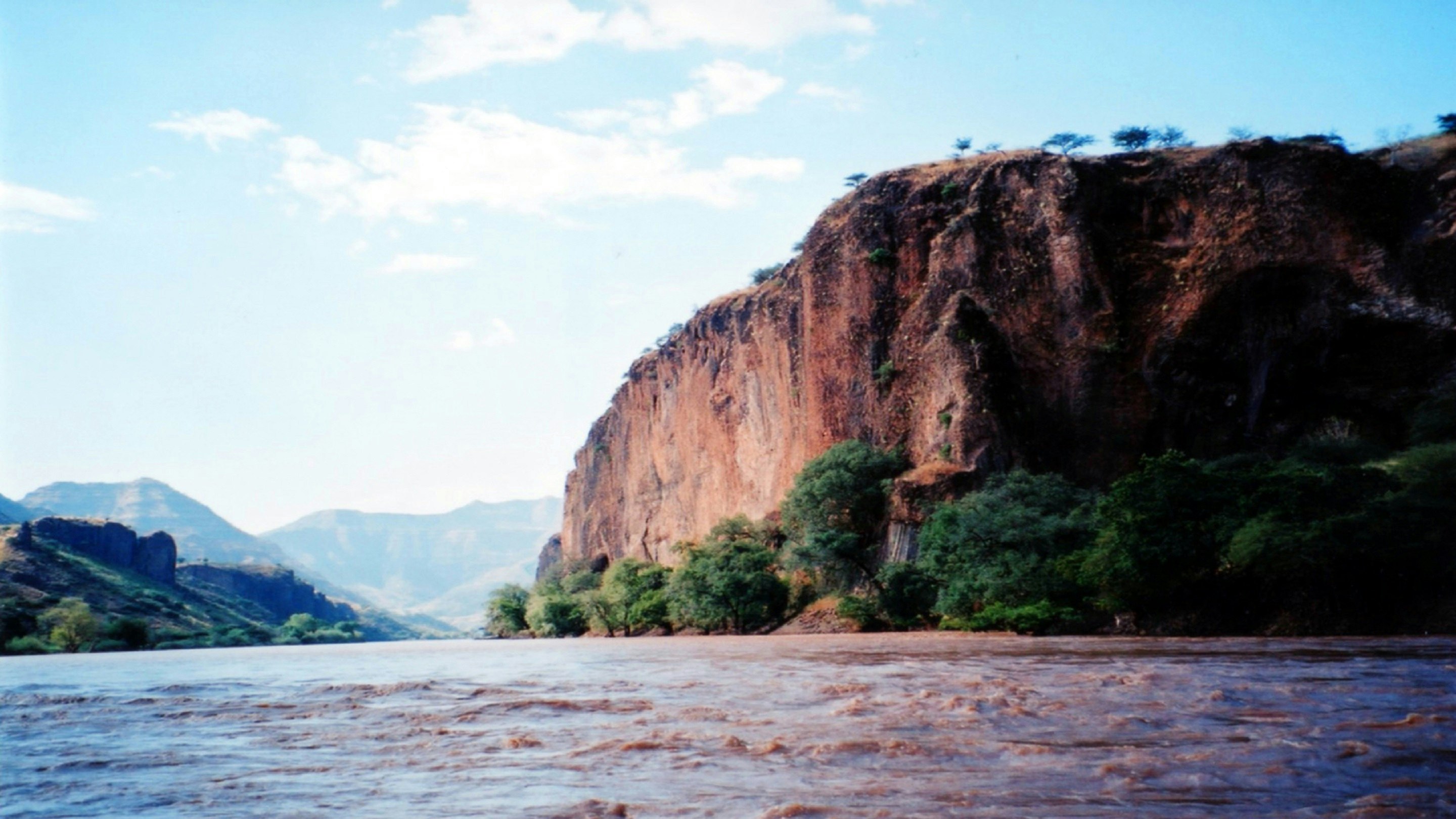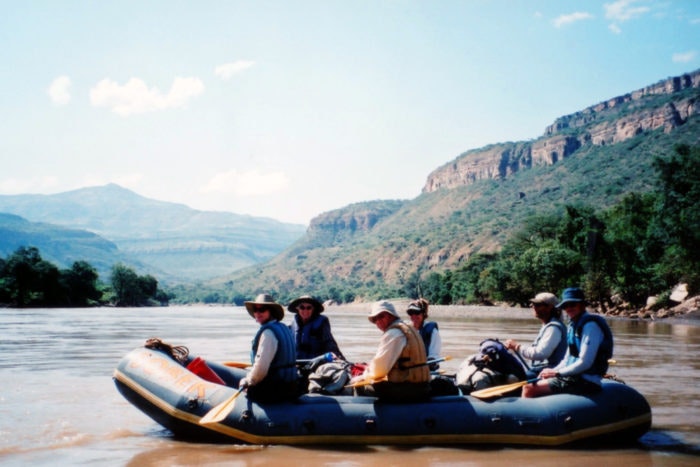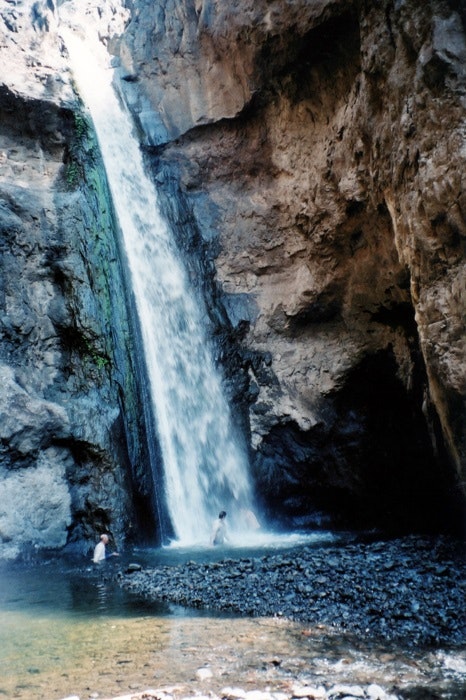Adventure on the Blue Nile

We trekked along the Blue Nile Gorge for several days, following the edges of fields. The gorge ended just before the Portuguese bridge, where we put in for the rafting part of the trip. Though there had been no bandit activity on the river for years, we were still required have a guard with us (armed with an old rifle and four bullets).
This guard was supposed to have been the leader of the local militia, but he had a last-minute domestic crisis. He told one of his squad to take his place. Could he let his family know? “No, just get in. They’re leaving.” Our guard was not a happy rafter.
He quickly learned to make the best of the situation. Although he didn’t much like our food, there was plenty of it. He learned our routine, and pitched in whenever an extra pair of hands was useful, no invitations necessary. Our Ethiopian liaison spoke city Amharic, and had difficulty communicating with the locals. The guard spoke the local patois, of course, and soon adjusted to the city-speak. He became our valued interpreter. As he mastered our strange ways and needs, he seemed to enjoy the trip as a valued, integral member of the group.

Malaria is endemic on this part of the Blue Nile and the local people lived high on the ridges over the river, above the range of most mosquitoes. The men drove cattle down to the river to drink, every day, and watched what was happening there from far above. We were always greeted by a group of native men when we pulled in for lunch or to camp for the night. The cattle herders were extremely poor: their only attire was a silver Coptic cross, hung around their necks. They were anxious to be helpful in return for very modest payment. Our guard explained that we would welcome any firewood they could gather and help unloading the rafts. That led to unusual human chains, consisting of decorously clad rafters alternating with stark naked natives, unloading the boats. It all worked well, with the guard playing a key role.
I was wearing my black neoprene paddle gloves and standing next to a local when we finished unloading the rafts. He kept looking at my white hair, very pale face, and black hands. He tentatively reached out a finger and poked my right hand. I folded back the glove and revealed my hand did indeed match my face, provoking hearty laughs from all the local men, who by this time were watching closely to see what would happen.

The trip featured impressive wildlife, but we mostly remember monitor lizards, Goliath herons, baboons, and crocodiles. The crocs were curious about the first boat, the paddle raft, but they were deterred from taking a bite when we launched croc rocks, about the size of cantaloupes, when they got too close. We kept a supply in the boat, so that we were always prepared to defend ourselves. Tom was scornful of our sloppy paddling: he called us The Dip Sticks. Luckily, there weren’t any challenging rapids below the gorge, so there was no need for precision and we ignored him!
When we reached take out, the guard expected to have to walk home, about 100 km. He was thrilled to hear we would provide a bus ticket. He was also endowed with a nice supply of clothing. Best of all, we had had a disagreement with the drivers of the donkeys that carried our gear on the trek when they staged a labor action midway through the trek. We had withheld their tip, and now unanimously agreed to give it to the guard.
So our guard returned to his family on a nice bus, valued by his foreign companions, with new clothes, and rich. To think he had come reluctantly!
Sandra Guldman, MT Sobek Guest
MT Sobek Trip: Blue Nile Adventure, 2001